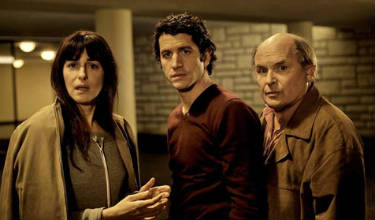Festivali
Fedeora
www.fedeora.eu
| "FESTIVAL REPORTS FROM MONS 2012.: LET MY PEOPLE GO !
FEDEORA jury at the International Love Film Festival in Mons, Belgium, held from February 24 to March 2 2012, awarded Let My People Go! by Mikael Buch. The jury was delighted to give the prize to a comedy, a genre that is often neglected at festivals. Read all the festival reports by: Ronald Bergan, Blagoja Kunovski and Maja Bogojevic on www.fedeora.eu"
Ronald Bergan Let My People Go! (the monolingual title) was one of 11 films in the European First Feature competition, all of which fell under the rather wide definition of films d'amour. They included love between father and son (The Mole /Kert/ – Poland), parents and son (Shelter /Podslon / – Bulgaria), two adolescent girls (She Monkeys /Apflickorna/ – Sweden), and surrogate father and son (Martino's Summer /L'estate di Martino/ – Italy). Let My People Go! is much closer to a true film d'amour, being 'boy loves boy, boy loses boy, boy gets boy'. The lovers are Ruben (Nicolas Maury) and Teemu (Jarkko Niemi), the former is French and the latter Finnish, although Ruben's family insist on calling him Swedish
|
BLAGOJA KUNOSKI Wherever I go, I know what to expect from a certain festival. It was also the case of FIFA/Mons Festival, even more so because they show films inspired by and dedicated to – Love!, a fact that I saluted at the closing Ceremony in Mons when we presented our FEDEORA Prize. "Vive L'Amour!" Apart from the Best First European Feature and the International Competition, the festival had parallel programmes: Les Autres Films (Other Films) and Regards Croisés (Crossed Views) or a Meeting of Minds. (Not all the 16 films presented films were the best from the latest world production and festivals, but This Must Be the Place by the Italian director Paulo Sorrentino, from last year's Cannes Competition, is one of my favourites). Then the programme Lumières D'Ailleurs (Lights From Elsewhere) – among 9, the Moroccan film The End by Hicham Lasri, was surprisingly good, especially visually, thanks to the cinematographer Maxime Alexandre, who shot it in black and white in a very dynamic way.
MAJA BOGOJEVIĆ |




